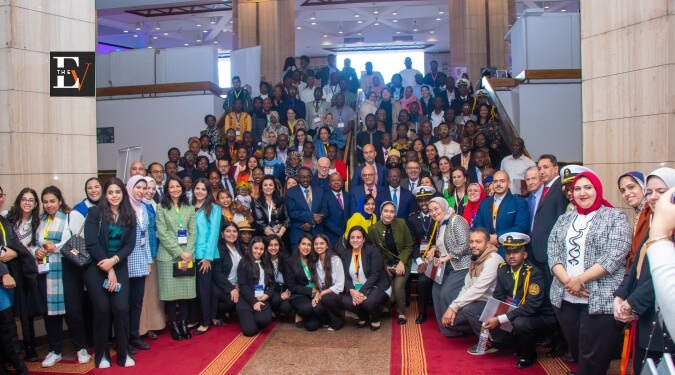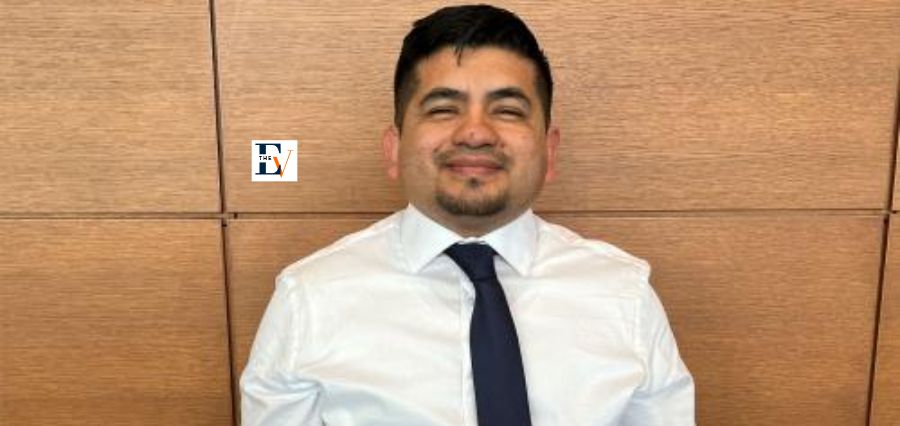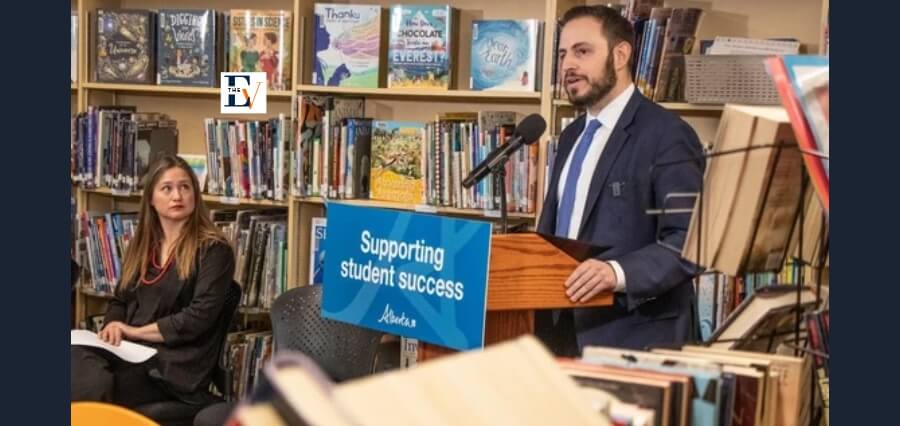Education is beyond pen and paper; it provides a vision and ambition for life. Proper education prepares students for the real world. Senghor University, officially known as “The French-speaking International University for African Development,” stands as a renowned institution for masters programs located in the vibrant city of Alexandria, Egypt. Its rich history and founding principles revolve around a mission deeply rooted in empowering French-speaking African executives to drive the development of their nations. This prestigious university is distinctive in its commitment to academic excellence, intercultural experiences, and a student-centric approach to education.
Its concepts trace its origins back to the early 1970s, driven by the vision of creating an institution dedicated to the education and development of French-speaking African professionals. However, it wasn’t until 1990 that this vision was realized with the formal establishment of the university. The International Organization of La Francophonie (OIF) played a pivotal role in bringing this vision to life.
It initially comprised departments such as the Administration Department (now known as the Management Department) and the Nutrition – Health Department (currently referred to as the Health Department). Subsequently, the Culture Department was introduced one year later, followed by the Environment Department three years thereafter. These departments were strategically established to address critical aspects of African development.
A Competitive Yet Rewarding Realm
Admission to Senghor University is highly competitive and follows a rigorous international selection process consisting of three stages: file submission, examinations, and interviews. The selection rate varies depending on the department, typically ranging between 5 per cent to 10 per cent. This stringent process ensures that the university admits the most promising and motivated candidates. Importantly, prospective students are required to have at least one year of professional experience, adding a practical dimension to their education.
One of the unique features of this institution is it offers tuition-free education to all its students, making higher education accessible to a broader demographic. Moreover, most students receive scholarships from the university that cover housing and daily living expenses, further easing their financial burden.
An Academic Milestone
Senghor University prides itself on its distinctive approach to education.
It functions more like a management school, emphasizing the development of managerial skills across various fields such as Culture, Environment, Governance, and Health. Graduates emerge from their studies equipped to design, manage, and evaluate projects, programs, and policies within their countries. It is instilled with a comprehensive understanding of the challenges their nations face and possesses the capacity to introduce innovative solutions in their organizations.
The university adopts a unique teaching model by relying on a dynamic teaching staff comprising experts and academics from North America, Europe, and Africa. These instructors bring diverse perspectives and pedagogical methods to the classroom, enriching the educational experience. Additionally, the curriculum emphasizes practical problem-solving techniques tailored to African contexts.
In line with modern educational trends, it places a strong emphasis on developing cross-functional skills among its students. These skills include effective communication, creativity, critical thinking, and teamwork, which are invaluable attributes in today’s job market.
Intercultural Experience
One of the hallmarks of Senghor University is its commitment to providing a triple intercultural experience to its students.
Students spend two years in Egypt, immersing themselves in a culture deeply rooted in the Middle East. This experience is unique, especially considering that approximately 98 per cent of students come from outside Egypt.
They get to interact with professors and experts from all over the world, each with distinct backgrounds and pedagogical methods. This diversity enriches their learning journey.
They also share their lives and experiences with peers hailing from 25 different countries in North, West, East, and Central Africa. This fosters an environment of cultural exchange and collaboration.
Empowerment and Community Engagement
Senghor University’s core mission revolves around strengthening young professionals to become leaders in their respective organizations and communities. Beyond traditional education, the university acts as a catalyst for students’ ideas, nurturing their creativity and problem-solving capabilities.
The university has integrated practical projects into its curriculum, encouraging students to develop innovative solutions to real-world challenges. These projects include a creativity project in the first semester, a “Department project” in the second semester where students solve actual problems posed by local organizations, and a literature review in the third semester. In the final semester, students undertake internships in companies or organizations, culminating in a master’s thesis based on their internship experiences.
Research Initiatives
While Senghor University has primarily been focused on education, recent developments have expanded its horizons into research. A doctoral school has been established, offering an interdisciplinary approach to research on African development. Doctoral candidates collaborate with international research teams, working on topics of great relevance to the African continent. For example, research topics include alternative justice in Africa, maternal nutrition in the Democratic Republic of Congo, and the integration of internally displaced populations in Burkina Faso.
Diversity and Inclusion
Senghor University champions diversity and inclusion at all levels. The student body represents more than 20 nationalities, ensuring a rich tapestry of cultures and perspectives. The university maintains a gender policy, achieving an equitable balance between male and female students. In terms of staff, women hold a significant number of leadership positions.
The university administration is dedicated to fostering racial, ethnic, tribal, religious, and gender integrity, promoting equal opportunities for professional development among employees and students. Faculty members themselves hail from around ten different nationalities, further enriching the multicultural environment.
Making Industry-Ready Graduates
Senghor University recognizes the importance of aligning its programs with the evolving demands of the job market. All students admitted to the university already possess professional experience, with 30 per cent of them already employed by public or private institutions in their respective countries. The university has revamped its master’s programs to incorporate transversal skills, ensuring that graduates are adaptable to various job positions. Additionally, the intercultural experiences gained here equip graduates with unique skills highly sought after by organizations, especially those operating on the African continent.
Amazing Alumni Network
Since its establishment, Senghor University has graduated over 3,500 individuals from 42 countries, including over 1,000 women. The impact of these graduates extends to various sectors of sustainable development. Notable alumni include leaders in the African Union, ministers of economy and finance, heads of institutions, ambassadors, CEOs, and other influential positions. The university actively celebrates the achievements of its alumni and encourages networking and collaboration among them.
The institution has taken significant steps toward addressing the gap between academia and the real-world needs of industries and organizations. By incorporating professionals from various sectors into the teaching staff, it has successfully increased the representation of experts to approximately 60 per cent in most programs and even up to 80 per cent in specialized programs like the master’s program in risk and crisis management.
Additionally, the establishment of an External Relations Department underscores their commitment to strengthening connections with the local socio-economic environment. This department is tasked with fostering relationships with nearby organizations and industries to ensure that the curriculum remains relevant and aligned with the current demands of the job market.
The institution has also initiated departmental projects that require students to work in teams on real-world challenges presented by local organizations and industries. This hands-on approach not only equips students with practical skills but also provides tangible solutions to real problems faced by the community.
The institution’s commitment to experiential learning is further evident through the introduction of a departmental week. During this week, students gain exposure to various professions, organizations, and their operational mechanisms through visits to local entities in Egypt. This immersive experience aids in shaping students’ understanding of real-world work environments.
Moreover, the institution hosts annual “company days” where professionals engage with students, sharing insights into their organizations’ activities and conducting workshops to prepare students for their future careers. This interaction not only provides valuable knowledge but also fosters networking opportunities for students.
By maintaining strong relationships with business associations and inviting industry leaders to contribute to major events and lectures, the institution ensures that students receive up-to-date insights and perspectives from the business world. Notably, the annual symposium, which brings together experts, business professionals, government representatives, and company directors, serves as a platform to discuss job market needs and educational policies, demonstrating the institution’s commitment to staying attuned to the evolving demands of the workforce.
Its multifaceted approach, combining expert involvement in teaching, active engagement with local organizations, experiential learning opportunities, and industry partnerships, is effectively preparing students for successful transitions into the professional world while fostering a mutually beneficial relationship between academia and industry.
A Global Hub for African Excellence
Senghor University is purposefully established to tackle the pressing global challenges faced in Africa, spanning the realms of Culture, Environment, Health, Administration, and Project Management. It boasts an international character, with a diverse teaching staff drawn from three continents and numerous esteemed institutions. Collaborative partnerships extend across 14 campuses outside of Egypt, in conjunction with national universities and institutions within Africa.
The student body represents a mosaic of more than 20 nations, inducing a rich experience of perspectives and experiences. Engaging in international projects, funded by both national and international development institutions such as the French Development Agency, the Food and Agriculture Organization, and UNESCO, underscores the institution’s commitment to addressing critical issues on a global scale.
Leveraging leading-edge information technologies, including Google Workspace for seamless administration and learning, it is at the forefront of digital transformation in education. Equipping students with proficiency in these technologies ensures their readiness for the modern workforce.
This holistic transformation, encompassing pedagogy, management, and digitization, enables the university to be agile and globally connected. A central tenet of their ethos is transparency and information sharing, reflecting their belief in empowering the emerging middle-class professionals in Africa to confidently shape the continent’s future, a mission it is actively engaged in today. Senghor University, therefore, stands as a unique beacon of opportunity and empowerment in Africa.






